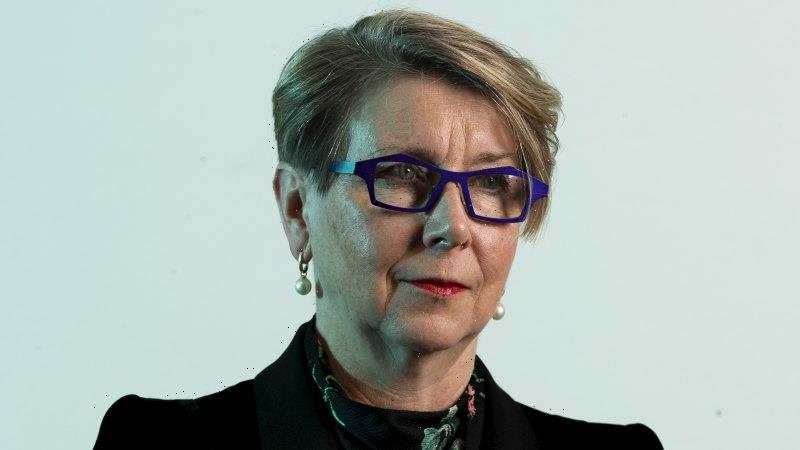For our free coronavirus pandemic coverage, learn more here.
A stoush over COVID-19 vaccine patent waivers sought by developing nations is holding up efforts to vaccinate the world as the Omicron variant sweeps the globe, former health department secretary Jane Halton says.
Ms Halton, chair of the Coalition for Epidemic Preparedness Innovations, said a pandemic preparedness treaty being negotiated by the World Health Organisation (WHO) must be used to promote information sharing to help developing countries manufacture their own vaccine doses.
Jane Halton says a new WHO treaty could be used to resolve the vaccine patent dispute.Credit:Dominoc Lorrimer
“A number of the parts of our global health security network have proven not fit for purpose during this pandemic,” Ms Halton said. “We need to learn the lessons and make sure that the systems and the agreements that we have in place going forward enable us to move more quickly. We need agreements about monitoring and surveillance, and when and how you might access intellectual property.”
The World Health Assembly last week launched a global process to draft and negotiate a new agreement under the WHO’s constitution to strengthen pandemic prevention, preparedness and response.
India and South Africa have led a push at the World Trade Organisation for a temporary suspension on patent protections for COVID-19 vaccines and diagnostics, a stance backed by 118 countries including the United States, Russia and China but opposed by the European Union.
Ms Halton said a balance must be struck to ensure pharmaceutical companies were not stripped of the incentive to invest in research that led to scientific breakthroughs and that an appropriate deal could be agreed on as part of the new treaty, to be signed next year.
With 88 per cent of Australia’s over-16 population fully vaccinated, Ms Halton, who co-chairs the COVAX initiative working to deliver 2 billion vaccine doses to developing countries, where fewer than 6 per cent of people are inoculated against COVID-19, said it was crucial the country did its part.
“As I kept pointing out, if we don’t vaccinate the world, then the prospect of variants remains very real,” she said.
“We get variants where we have significant proportions of populations unvaccinated [and] a lot of the virus circulating. So, the reason we need to ensure we vaccinate is not anything other than in our own interest … No one should think to themselves that if it happens in South Africa or Botswana or Ethiopia or Nigeria, that that is not a problem for us.”
Ms Halton said one of the challenges to vaccinating the developing world through the COVAX initiative was the unpredictability of countries such as India, which imposed an export ban during its deadly second wave of coronavirus.
COVAX was supposed to ship 2 billion doses by December, but is behind schedule and now hopes to meet this target early in 2022, after shipping an initial 600 million doses.
While booster programs in the developed world would increase demand for vaccines, she said this should not affect the COVAX program as orders were already in.
Fascinating answers to perplexing questions delivered to your inbox every week. Sign up to get our new Explainer newsletter here.
Most Viewed in Politics
From our partners
Source: Read Full Article

